幻聴で思ったSu事その4
2023.02.06(Mon)
福岡大
英検一級
Peru's Guano Boom
When Peru achieved its independence from Spain in the 1820s,it was beset by economic woes.The hard-fought war for freedom had damaged the trade in silver between the two countries,leading to Peru's country.
The conflict had also put the country in massive debt to British bankers,from whom the Peruvian government had borrowed heavily for two decades following independence,`Peru was eventually handed a glimmer of hope in the from of an unlikely resource:seabird manure.
This waste product,known as guano,had accumulated in enormous mounds on the Chincha Islands off the country's coast.
Its shores,drenched in nourishing waters flowing from the Pacific Ocean and teeming with various marine species,attracted a large predatory bird population.
The combination of cool ocean currents and w3arm tropical air created an exceedingly arid environment,ensuring that the abundant nutrients naturally present in the guano were not dispersed by precipitation.The particularly high nitrogen content in guano,in fact,is what made the waste material an ideal fertilizer.
Indigenous peoples had been using the guano sustainably such for centuries ,carefully timing its extraction from the islands so as not to disturb the seabird populations and penalizing anyone who harmed the birds during mating season with death.
Guano was not widely appreciated in Europe,however,until 1838,when two businessmen in Peru sent samples to Britain,where farmers soon noted its effect on depleted soil.
The surge in demand for good food caused by an enormous population boom had led to unsustainable farming practices,while the population shift from rural to urban areas driven by industrialization meant human waste wound up in cities rather than being returned to farmland to be used as had previously been the case.
Guano proved a magic bullet to invigorate the degraded soil.
By 1841,trade in the product between Peru and Britain was well underway,ushering in the Guano Age.The Peruvian government enjoyed a monopoly over the Chincha Islands' Guano,but the fcountry lacked both the capital and the expertise to effectively manage international shipping and sales.
Consequently,these were consigned to British merchants,who received a substantial commission for their efforts.
Furthermore,payment was not rendered to the Peruvian government until transactions were finalized--a rather lengthly process considering that loading one ship could take wee44ll over a month.
This drove Peru to borrow further from British creditors--who,product--and pay them back with interest using money earned from the sales.The benefit of drawing out this process were not lost on the merchants.who were soon profiting more from granting advances to the Nevertheless,the partnership bolstered Peru's standing with made potential lenders hesitant to risk their capital on loans to the government.
The control over Peru's guano revenue excised by the wealthy,reputable British merchants,however,instilled confidence that the country could be trusted to make good on its debts opening up Peru's access to capital markets abroad.
By the late 1850s,the export of hundreds of thousands of tons of guano annually to foreign countries was contributing over thee,quarters of Peru's national revenue,yet the country remained in of revenue from the country,the Peruvian government encouraged special business concessions.British companies maintained their large degree of control,however,by simply entering into partnerships with Peruvian firms,resulting in the continued flow of capital out of Peru.
Spurred on by the access to loans afforded the country on the basis of the seemingly constant stream of guano revenue,the borrowing.
Rampant corruption among the ruling class only made matters worse,and although much money had been poured into various public projects,little had been spent on efforts to diversify and stabilize the economy in the long term.
The guano-driven "prosperity" Peru enjoyed eventually Proved painfully finite.
Ravaged by the guano trade,the Chincha Islands' once-gigantic mounds of manure that had formed over thousands of year were almost depleted by the 1870s,and the seabirds relied on for replenishing the supply had been largely driven away or killed after decades of incessant extraction.
The shortage spelled economic disaster for Peru,whose lack of economic prudence left it no better off after the Guano boom than it had been before it.Swedish historian.
2023.02.06(Mon)
福岡大
英検一級
Peru's Guano Boom
When Peru achieved its independence from Spain in the 1820s,it was beset by economic woes.The hard-fought war for freedom had damaged the trade in silver between the two countries,leading to Peru's country.
The conflict had also put the country in massive debt to British bankers,from whom the Peruvian government had borrowed heavily for two decades following independence,`Peru was eventually handed a glimmer of hope in the from of an unlikely resource:seabird manure.
This waste product,known as guano,had accumulated in enormous mounds on the Chincha Islands off the country's coast.
Its shores,drenched in nourishing waters flowing from the Pacific Ocean and teeming with various marine species,attracted a large predatory bird population.
The combination of cool ocean currents and w3arm tropical air created an exceedingly arid environment,ensuring that the abundant nutrients naturally present in the guano were not dispersed by precipitation.The particularly high nitrogen content in guano,in fact,is what made the waste material an ideal fertilizer.
Indigenous peoples had been using the guano sustainably such for centuries ,carefully timing its extraction from the islands so as not to disturb the seabird populations and penalizing anyone who harmed the birds during mating season with death.
Guano was not widely appreciated in Europe,however,until 1838,when two businessmen in Peru sent samples to Britain,where farmers soon noted its effect on depleted soil.
The surge in demand for good food caused by an enormous population boom had led to unsustainable farming practices,while the population shift from rural to urban areas driven by industrialization meant human waste wound up in cities rather than being returned to farmland to be used as had previously been the case.
Guano proved a magic bullet to invigorate the degraded soil.
By 1841,trade in the product between Peru and Britain was well underway,ushering in the Guano Age.The Peruvian government enjoyed a monopoly over the Chincha Islands' Guano,but the fcountry lacked both the capital and the expertise to effectively manage international shipping and sales.
Consequently,these were consigned to British merchants,who received a substantial commission for their efforts.
Furthermore,payment was not rendered to the Peruvian government until transactions were finalized--a rather lengthly process considering that loading one ship could take wee44ll over a month.
This drove Peru to borrow further from British creditors--who,product--and pay them back with interest using money earned from the sales.The benefit of drawing out this process were not lost on the merchants.who were soon profiting more from granting advances to the Nevertheless,the partnership bolstered Peru's standing with made potential lenders hesitant to risk their capital on loans to the government.
The control over Peru's guano revenue excised by the wealthy,reputable British merchants,however,instilled confidence that the country could be trusted to make good on its debts opening up Peru's access to capital markets abroad.
By the late 1850s,the export of hundreds of thousands of tons of guano annually to foreign countries was contributing over thee,quarters of Peru's national revenue,yet the country remained in of revenue from the country,the Peruvian government encouraged special business concessions.British companies maintained their large degree of control,however,by simply entering into partnerships with Peruvian firms,resulting in the continued flow of capital out of Peru.
Spurred on by the access to loans afforded the country on the basis of the seemingly constant stream of guano revenue,the borrowing.
Rampant corruption among the ruling class only made matters worse,and although much money had been poured into various public projects,little had been spent on efforts to diversify and stabilize the economy in the long term.
The guano-driven "prosperity" Peru enjoyed eventually Proved painfully finite.
Ravaged by the guano trade,the Chincha Islands' once-gigantic mounds of manure that had formed over thousands of year were almost depleted by the 1870s,and the seabirds relied on for replenishing the supply had been largely driven away or killed after decades of incessant extraction.
The shortage spelled economic disaster for Peru,whose lack of economic prudence left it no better off after the Guano boom than it had been before it.Swedish historian.










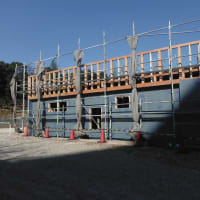
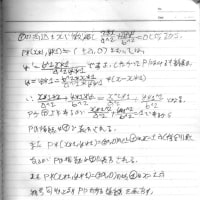
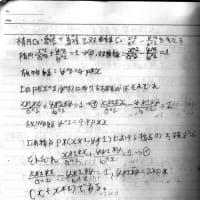
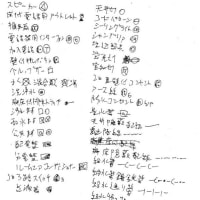
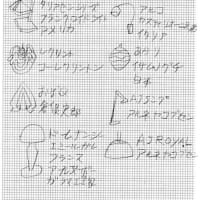
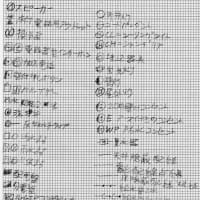
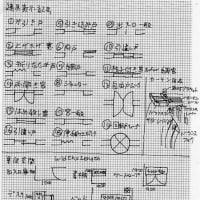
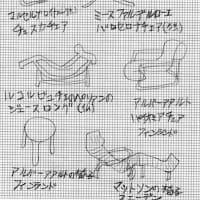
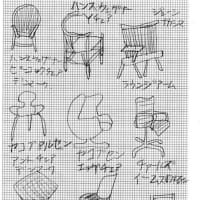
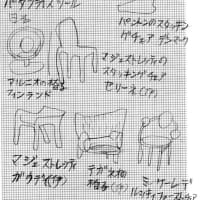
※コメント投稿者のブログIDはブログ作成者のみに通知されます